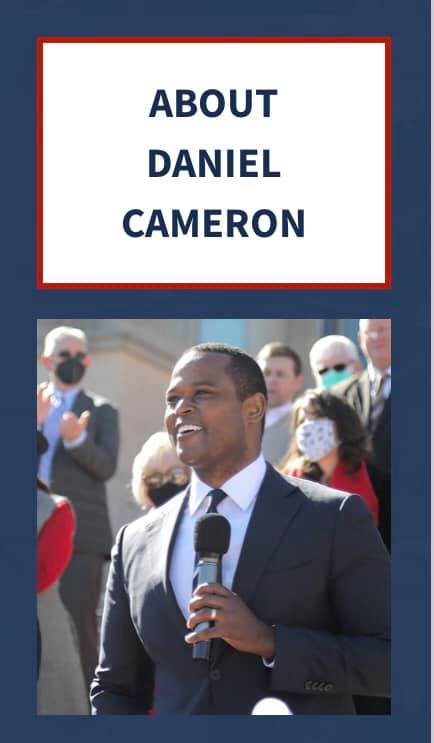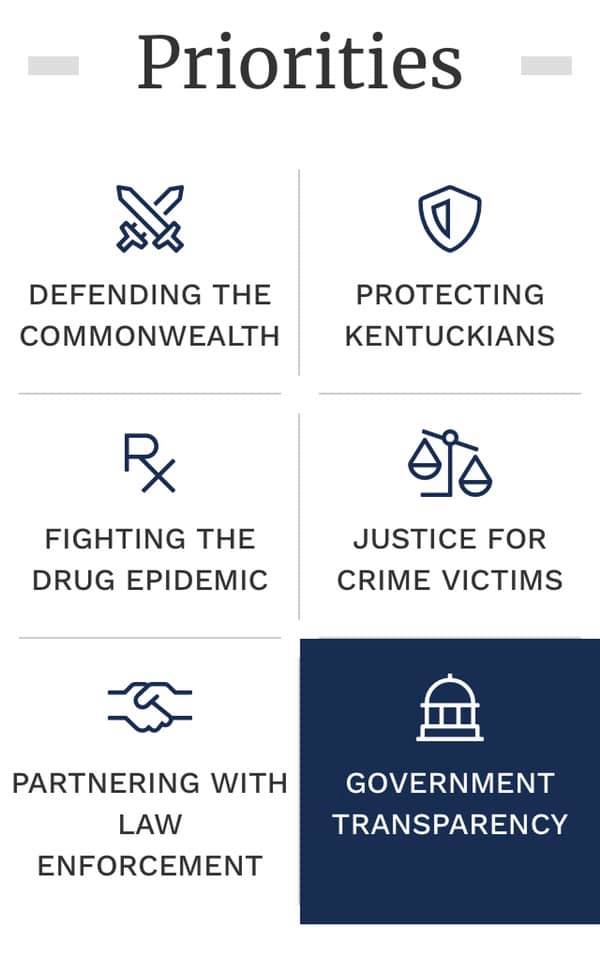

REBUTTAL
Last week Attorney General Daniel Cameron issued a third open records decision determining that — without regard to their nature, purpose, or content — "text messages sent and received on privately-owned devices, for which no public funds have been spent, are not 'public records' under KRS 61.870(2)."
This time, Cameron stated that the attorney general's office had "consistently found" that messages on privately owned devices are not public record. In support, he cited 21-ORD-146, 21-ORD-127, and 15-ORD-226.
Admonishing public employees "to refrain from using privately owned devices," Cameron concluded that "KRS 61.870(2), as currently enacted, does not include text messages on privately owned devices within the definition of 'public record,'" and affirmed Louisville Metro Police Department's denial of The Courier Journal's open records request.
https://ag.ky.gov/Priorities/Government-Transparency/orom/2021/21-ORD-1…
Chances are we will soon see an explosion in the use of privately owned devices by public officials and employees to conduct public business. The public's right to know will be the first casualty of Cameron's anything but "consistent" finding.
JACK CONWAY'S ELEVENTH HOUR DECISION ISSUED IN 2015
It is true that on his last day in office in 2015, Attorney General Jack Conway ordered what remained of his nonmerit staff to issue an open records decision aimed at crippling that right to know. It is also true that no merit staffer would sign the decision.
https://ag.ky.gov/Priorities/Government-Transparency/orom/2015/15ORD226…
Conway concluded that communications concerning public business that are conducted by public officials and employees on privately owned devices are not accessible under the law because those records are not "possessed" by the public agency they serve.
Conway's 2015 decision ignored both the expansive definition of the term "public record" and years of precedent that had guided the attorney general's interpretation of the law.
https://apps.legislature.ky.gov/law/statutes/statute.aspx?id=51390
Fundamental to that precedent was the recognition that "[i]n the end, it is the nature and purpose of the document, not that place where it is kept, that determines its status as a public record."
https://ag.ky.gov/Priorities/Government-Transparency/orom/2000/00ORD207…
(Conway's 2015 decision was cited by Sen. Damon Thayer in 2018 as the basis for his ill-fated proposal to exclude "emails, texts or calls on devices paid for entirely with private funds and which do not involve government email accounts" from the broadly worded definition of the term "public record" in the open records law.)
WHY CONWAY WAS WRONG
Conway (and Thayer) ignored an ever-growing body of law outside Kentucky declaring that "an agency always acts through its employees and officials. If one of them possesses what would otherwise be agency records, the records do not lose their agency character just because the official who possesses them" maintains them on a private device.
The lynchpin of this rule of "constructive agency possession" is the understanding that the purpose of public access laws is not served if an official or employee "can deprive the citizens of their right to know what his department is up to by the simple expedient of maintaining his departmental emails on an account in another domain." It makes as much sense, the reasoning goes, to say that the official "could deprive requestors of hard-copy documents by leaving them in a file at his daughter's house and then claiming that they are under her control."
Like Cameron, Conway discouraged the use of private devices in conducting public business, but both left the door open for widespread abuse. Public officials and employees wishing to evade scrutiny — whether through their records or their meetings — received a green light to do so through the use of privately owned devices.
SOUNDER MINDS PREVAIL—REPAIRING THE DAMAGE DONE
Recognizing the threat to public access that Conway's 2015 decision represented, the open records staff within the attorney general's office subsequently attempted to minimize the decision's harmful impact.
Contrary to Cameron's claim that the attorney general consistently followed Conway's disastrous 2015 open records decision, culminating in the three 2021 decisions issued by Cameron himself in the last few weeks, Attorney General Andy Beshear repudiated Conway's 2015 open records decision in a series of decisions.
•In December 2017, Beshear issued a decision in which he determined that the University of Kentucky improperly allowed an employee to conduct public business on his private email account by automatic forwarding of all messages on his public account to the private account.
Beshear characterized this practice as "the functional equivalent of conducting public business solely on a private email account" and declared that the University "systematically failed in its duty to properly maintain its public records."
https://ag.ky.gov/Priorities/Government-Transparency/orom/2017/17ORD273…
•In February 2018, Beshear's office adopted this position when it held that an Erlanger city official improperly conducted public business on her AOL account and failed to retain those emails. In so doing, the office again found a systematic failure to properly maintain public records.
•In 19-ORD-011, the OAG inched closer to overruling Conway's decision by declaring that communications concerning a proposed ordinance, conducted by a Park Hills city councilman on a private email account maintained on public equipment, constituted public records under the open records law.
The disputed emails, which were submitted to the OAG for confidential inspection, confirmed that the councilman "used his private email account with the intent to shield the communications from the public" in the belief that he would receive and "use" more candid advice to revise the ordinance and thereby secure city council support.
Relying on open records decisions issued before and after Conway's aberrant 2015 decision, the January 2019 decision concluded that because records "used" by an agency are subject to the law "regardless of where they are located or whose 'personal property' they are considered," the emails in dispute were "public records subject to public disclosure unless an exception applies."
•Finally, in 19-ORD-206, Beshear relied on 19-ORD-011 to reverse Conway's 2015 open records decision, observing that 19-ORD-011 "established that a city council member had used his 'private email account with the intent to shield the communications from the public.' In holding that responsive e-mails in his private account were public records, and therefore subject to disclosure unless a statutory exception applied, this office emphasized, 'A record that is "used' by a public agency is a public record of that agency under the definition of the term "public record" found at KRS 61.870(2).' 19-ORD-011, p. 4 (citing 12-ORD-178). The instant appeal presents no basis to depart from this reasoning. Insofar as 15-ORD-226 suggests otherwise, *that decision is hereby modified*."
CAMERON IGNORES INCONSISTENT OPEN RECORDS DECISIONS
In the open records appeal that yielded the poorly reasoned 21-ORD-127, Cameron was reminded that the OAG had reversed 15-ORD-266 in 19-ORD-206.
Not only did Cameron ignore the fact that 15-ORD-266 was no longer good legal authority — which was carefully brought to his attention — in 21-ORD-127, he has gone on to cite the discredited 2015 decisionas evidence that the Office of the Attorney General has "consistently found" that communications on privately owned devices are not public records for open records purposes, regardless of their nature, purpose, or content.
A QUESTION OF PRIORITIES??
At best, Daniel Cameron's position reflects sloppy legal research. At worst, it reflects calculated misrepresentation. Either way, it is the public that must now question whether government transparency is, in fact, one of Daniel Cameron's priorities.


